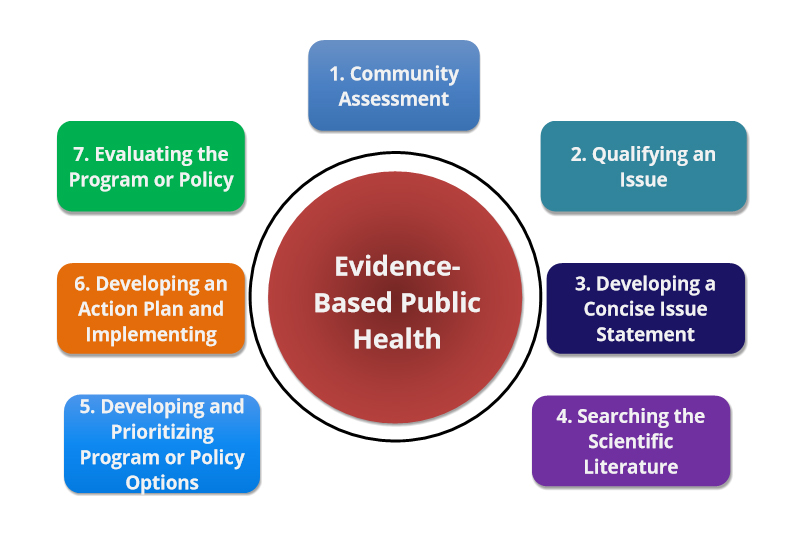This online and self-paced course provides a comprehensive overview of Evidence-Based Public Health. It teaches participants the steps for impactful program planning and evaluation that are based on sound scientific data. The course includes:
- How to write issue statements
- Performing scientific literature searches
- Determining program or policy priorities
- Creating action plans and logic models
- Creating your evaluation plan.
The course is based on the work of Ross C. Brownson, PhD and his colleagues at Washington University.
The course may be taken alone or as part of the CE Online Certificate in Public Health. It is completely online and self paced.
Free
Training Level
Tier 2 – Management
Audience
This course is appropriate for anyone who needs to apply the EBPH model to planning and evaluating programs or policies.
Instructor
Janet L. Place, MPH,
USC Arnold School of Public Health
Time
This course takes two hours to complete.
Format
This course consists of audio, videos, assessments, activities, as well as additional resources. There are text transcripts within the lecture for accessibility.
Last Updated
Credit
Learners will receive a two-hour Certificate of Completion.
Council on Linkages Competencies
1B4. Uses information technology in accessing, collecting, analyzing, using, maintaining, and disseminating data and information
1B5. Analyzes the validity and reliability of data
1B15. Advocates for the use of evidence in decision making that affects the health of a community
2B2. Develops program goals and objectives
2B7. Examines the feasibility (e.g., fiscal, social, political, legal, geographic) and implications of policies, programs, and services
2B10. Explains the importance of evaluations for improving policies, programs, and services
2B11. Evaluates policies, programs, and services (e.g., outputs, outcomes, processes, procedures, return on investment)
2B13. Uses public health informatics in developing, implementing, evaluating, and improving policies, programs, and services
3B3. Solicits input from individuals and organizations for improving the health of a community
4B4. Supports diverse perspectives in developing, implementing, and evaluating policies, programs, and services that affect the health of a community
4B6. Assesses the effects of policies, programs, and services on different populations in a community
5B9. Explains the ways assets and resources can be used to improve health in a community
6B5. Retrieves evidence from print and electronic sources to support decision making
6B6. Determines limitations of evidence (e.g., validity, reliability, sample size, bias, generalizability)
6B7. Uses evidence in developing, implementing, evaluating, and improving policies, programs, and services
6B10. Develops partnerships that will increase use of evidence in public health practice
Technical Requirements
Windows: Internet Explorer 11, Microsoft Edge (latest version), Google Chrome (latest version), Firefox (latest version)
Mac: Safari (latest version), Google Chrome (latest version), Firefox (latest version)
Mobile: Safari in Apple iOS 10 or later, Google Chrome in Apple iOS 10 or later, Google Chrome in Android OS 4.4 or later
Adobe Flash Player 10.3 or later plus any of these web browsers:
Windows: Internet Explorer 8 or later, Microsoft Edge (latest version), Google Chrome (latest version), Firefox (latest version)
Mac: Safari (latest version), Google Chrome (latest version), Firefox (latest version)

